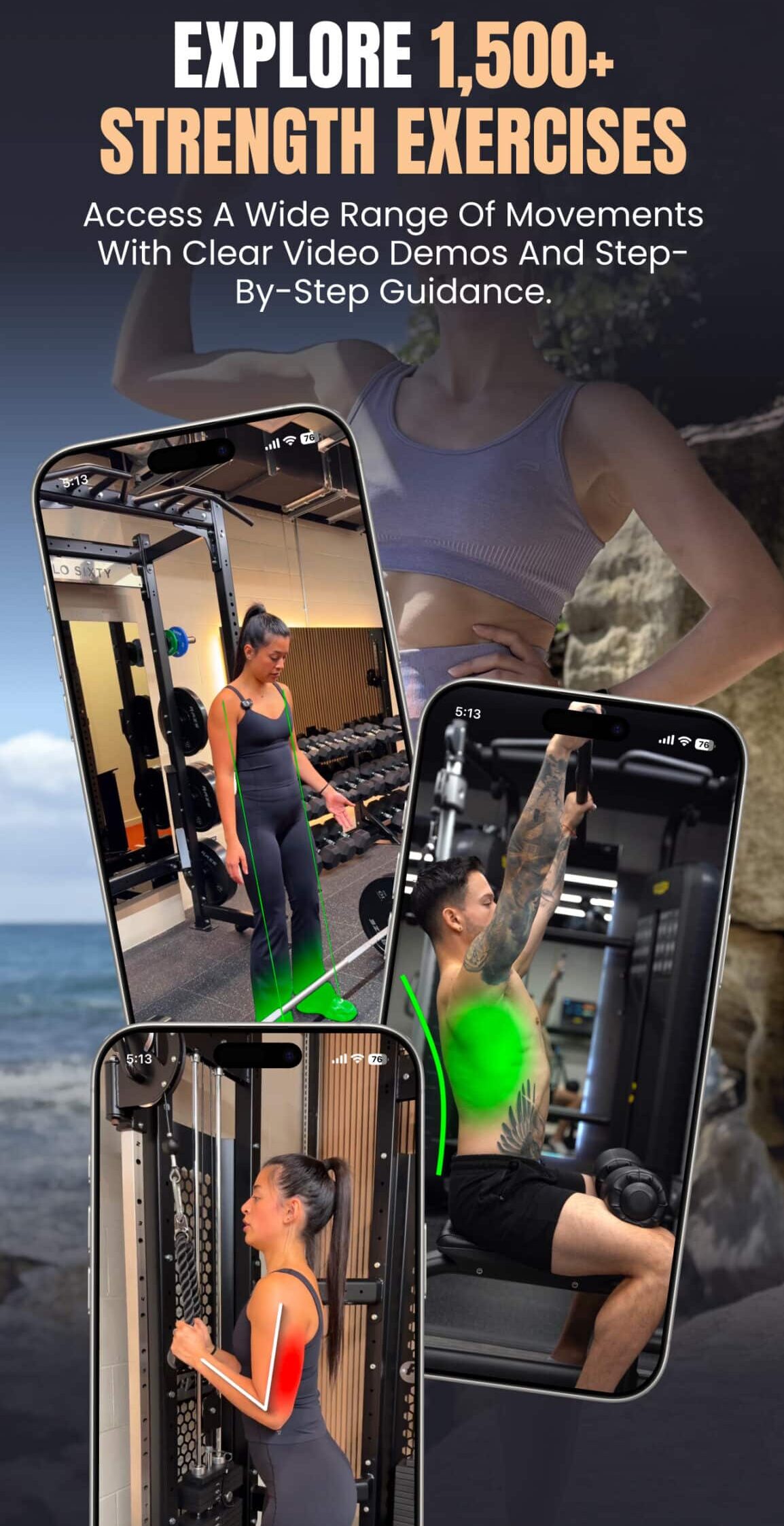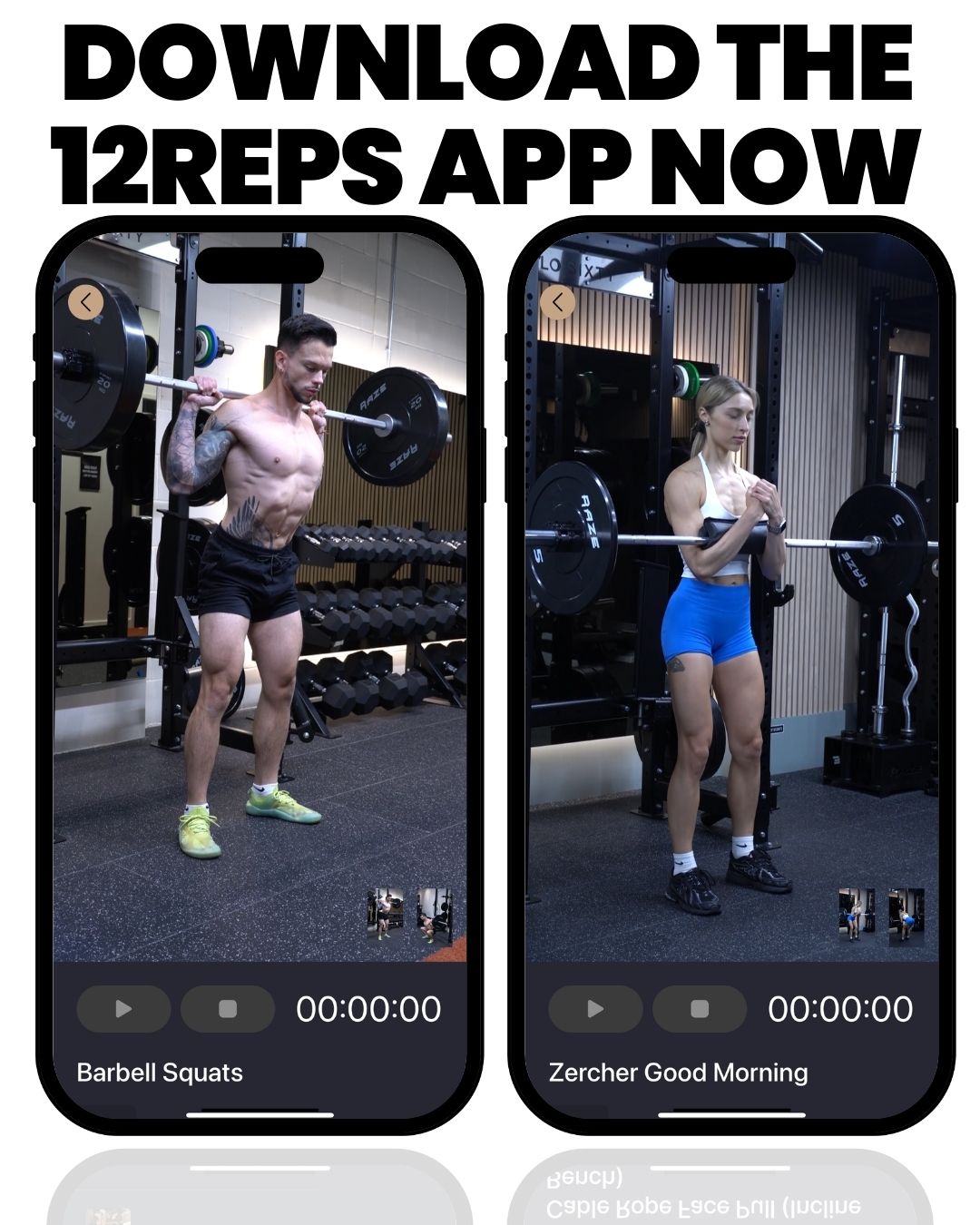By Will Duru, BSc (Hons) Sport and Exercise Science, Award-winning Personal Trainer with over 10 years of experience in strength training and optimising recovery.
The fitness industry is rapidly evolving, with cutting-edge technology at its heart. Digital fitness has surged – one analysis notes a “30% increase in the adoption of digital fitness since 2021,” with AI-powered fitness apps growing at a 17% annual rate. This explosion reflects how smart workout apps are making bespoke training tools widely available.
By analysing user data (from goals and experiences to wearable sensors), AI-based systems craft dynamic plans that update in real-time. Industry experts agree this shift is profound: for example, one report outlines how AI can continually “tailor workout routines to individual fitness levels, goals, and preferences,” ensuring each session is optimised for each user.
In practical terms, apps like 12reps app are leading this charge – using advanced algorithms (branded as AI) to generate highly personalised strength-training programmes and progress analytics.
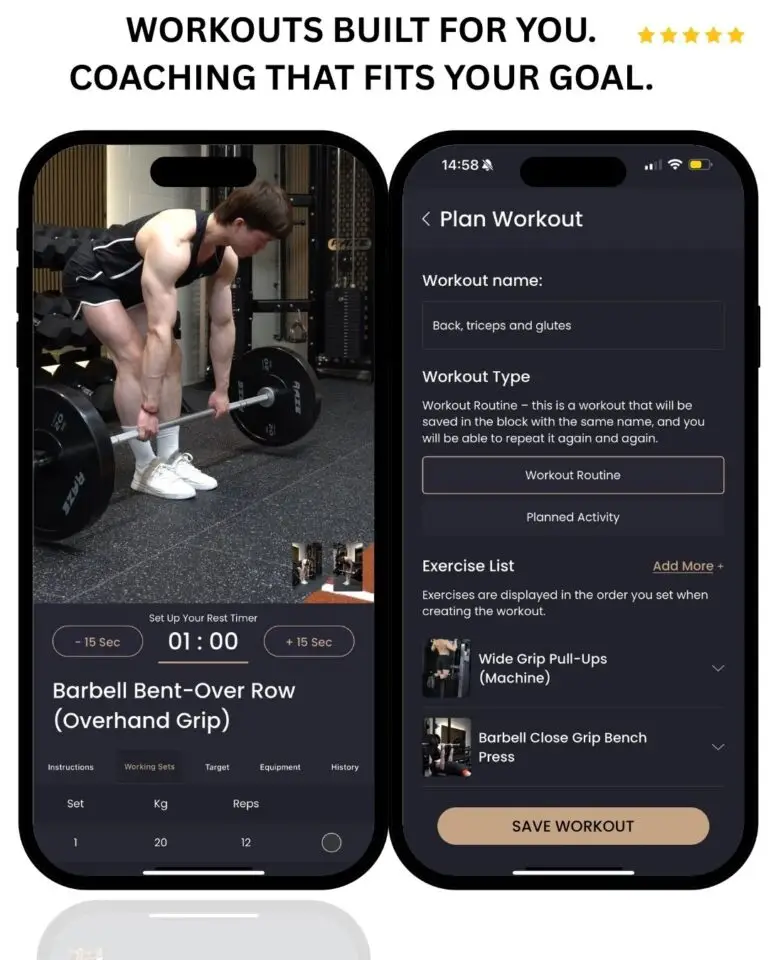
Personalised Training Programs
Personalisation is a key benefit of AI fitness technology. Unlike generic routines, modern apps design workouts around you – your goals, strength, fitness level, and even the equipment you have. For instance, 12reps app starts by asking simple questions about your objectives (e.g. muscle gain, fat loss), experience and available gear .
It then “filters its extensive exercise library and training methodologies to serve up a routine that fits your exact situation” . In other words, if you only have dumbbells or just bodyweight, the plan will reflect that. This tailoring means every exercise and rep count toward your progress, avoiding wasted effort.
AI algorithms can also adapt plans over time. After each workout, apps learn from your performance. 12reps app, for example, “tracks your sets, reps, and weights for each exercise, and even asks how you’re feeling… If you log that you easily hit all your reps, the app knows you’re ready to increase the challenge next time. If you report low energy… it may adjust the intensity” .
This adaptive approach keeps you in the “sweet spot” of exertion – not too easy, not too hard – which speeds gains and maintains motivation. As one fitness industry review notes, AI-driven programmes continuously challenge users at just the right level to maximise results. In practice, this means your custom workout plan becomes smarter with every session, much like having a personal trainer who updates your routine based on your progress.
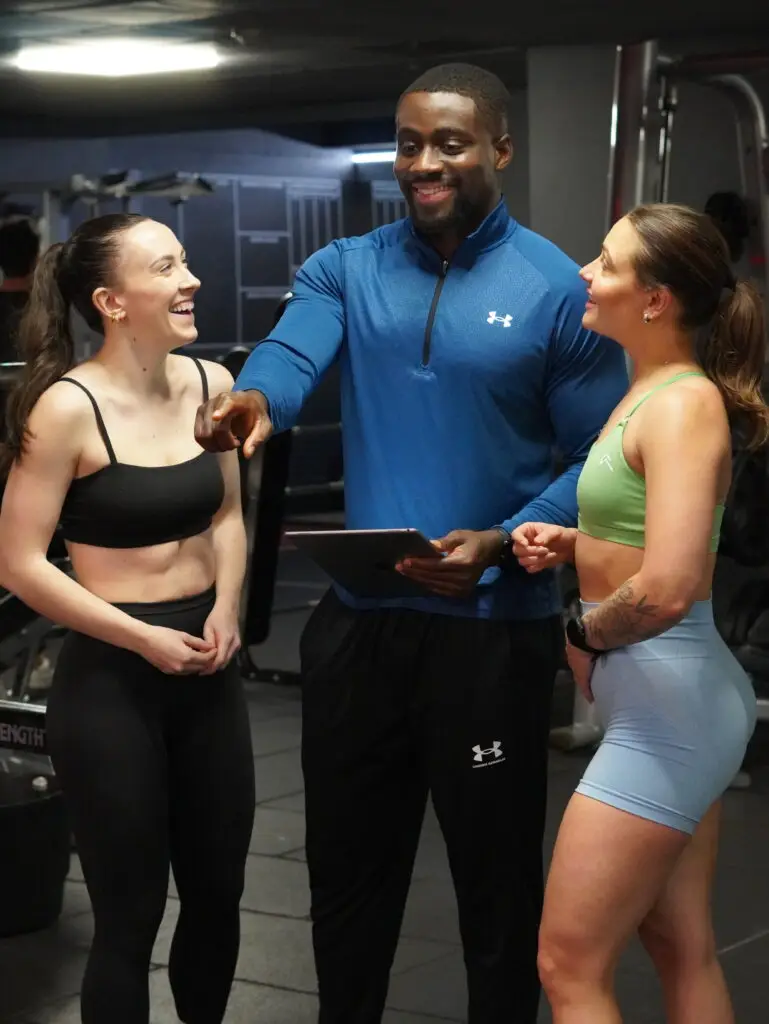
Key features of AI-driven programming include:
- Tailored workout plans. The app creates a program optimised for your goals and constraints. For example, 12Reps asks about your target (e.g., strength or fat loss), fitness level, and equipment, then generates a plan just for you.
- Equipment-aware design. Whether you’re at a fully equipped gym or working out at home, the algorithm adapts. 2reps app boasts “over 1,000 exercises” in its library – including many bodyweight moves – so it never assigns a movement you can’t do .
- Adaptive progression. The system adjusts workout intensity based on performance. If you breeze through a workout, the algorithm will increase the difficulty next time; if you struggle or report fatigue, it will lighten the load.
- Focused targeting. You can emphasise specific muscle groups or workout types. The app then fills sessions accordingly (e.g., a “chest day” or a HIIT session), prioritising what matters most to you.
This hyper-personalisation contrasts sharply with one-size-fits-all fitness. By matching routines to your body and lifestyle, users tend to stick with their workouts longer and see faster progress. In effect, AI enables an app to simulate a customised trainer for everyone.
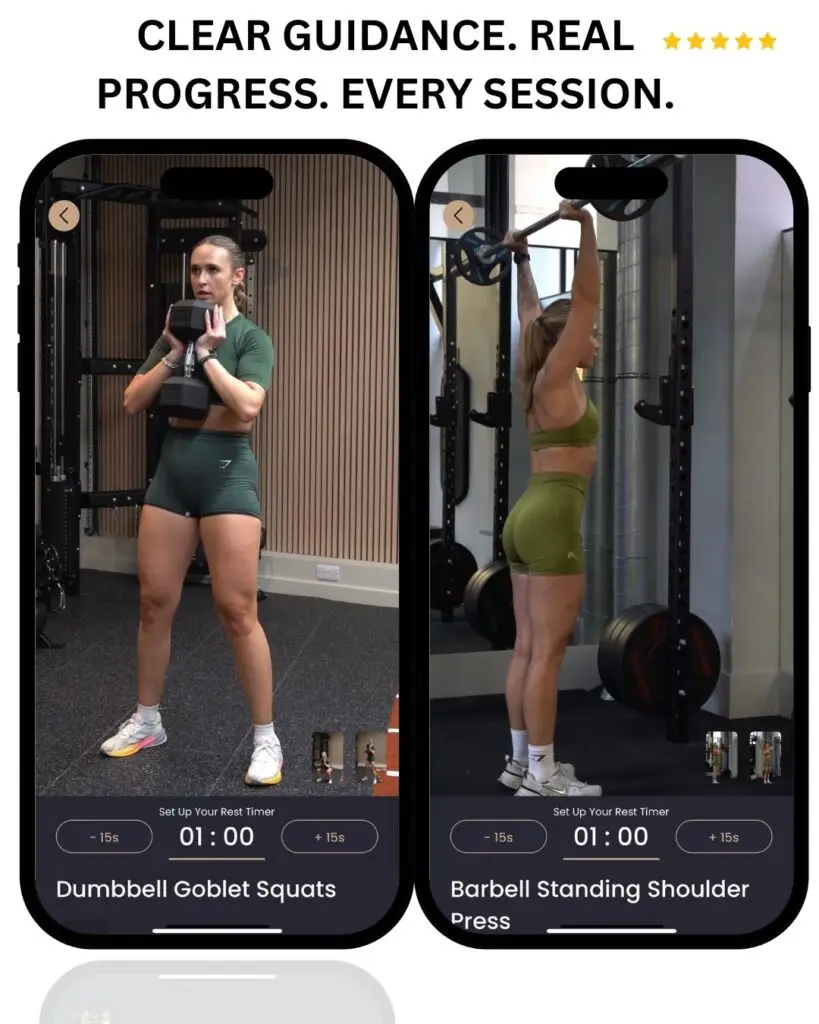
Real-Time Coaching and Form Feedback
Beyond planning workouts, AI in fitness apps often delivers instant, interactive coaching. Smartphones and smart gym equipment can analyse your movements or biometrics on the fly, offering live feedback.
Figure: A real-time AI overlay analyses exercise form and metrics during a workout. Modern systems can display on-screen cues about posture, motion speed or muscle engagement as you train. For example, some apps use a phone camera or wearable sensors to detect form issues and immediately alert you.
Experts note that AI can provide “instant feedback on exercise form” and even adjust the routine mid-workout to maximise results and prevent injuries. In practice, this might look like an app highlighting if your squat depth is too low or if your lift is too fast, then prompting you to correct it.
Smart apps can also serve as digital training logs. By capturing every rep and heart-rate data, the app provides on-the-spot guidance. For instance, one industry report highlights applications that offer continuous motivation with real-time feedback, including form corrections or motivational prompts, during exercise.
While Just 12 Reps does not use a camera to correct your posture, it applies the same principle through its workout interface: you log each set, and the app immediately shows your progress (weights lifted, total volume, etc.), so you can stay on track. In all cases, the goal is to make workouts interactive.
Instead of mindlessly following a preset routine, the app becomes like a virtual coach, checking your technique and nudging you to push harder or ease off. This live coaching element, powered by AI algorithms, helps users train smarter during each session.
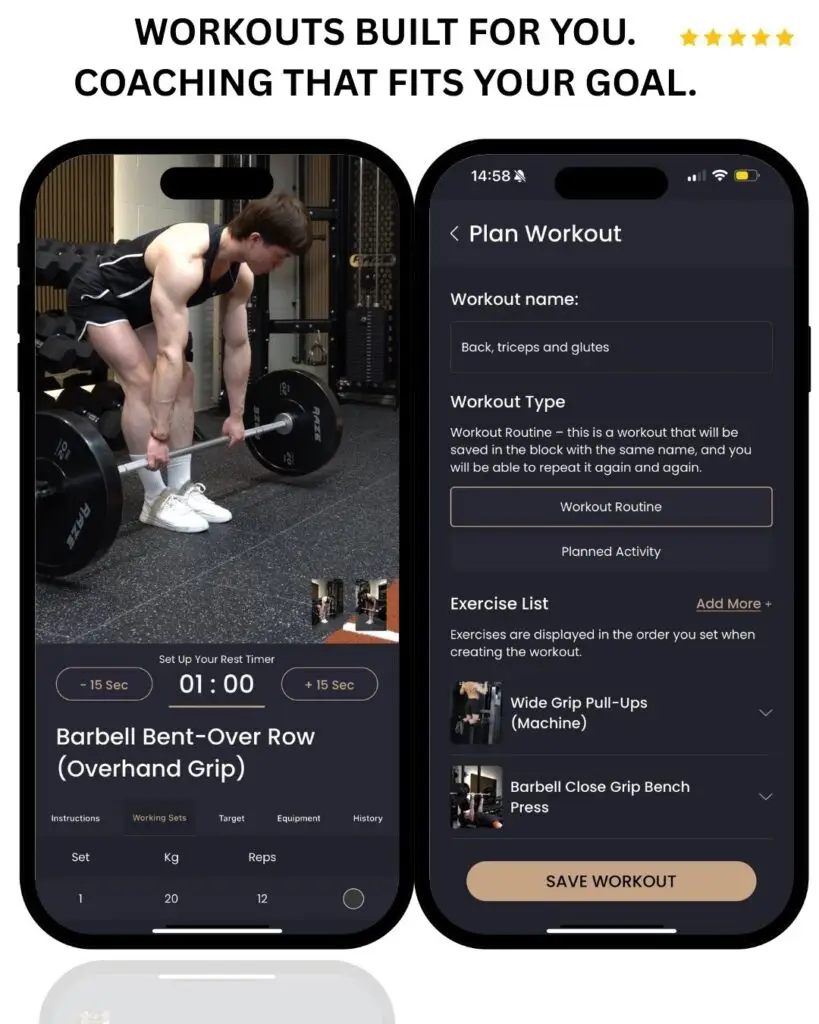
Injury Prediction and Prevention
One of the most promising impacts of AI in fitness is increased safety. By analysing data on your body and workouts, AI systems can identify injury risks before they become actual problems. In sports medicine, for example, AI models analyse biomechanics and training loads to identify subtle changes that precede injury. These tools can “forecast potential injuries” by recognising patterns in movement, then alerting the user to adjust technique or rest.
Consumer fitness apps are starting to leverage this capability. For example, smart workout apps use tracking algorithms to “monitor movement patterns, reducing the risk of injuries”. They do this by spotting unsafe lifting mechanics, suggesting corrective exercises, and even predicting overuse issues. If you start to exhibit an asymmetrical form or your training volume spikes too quickly, an AI-driven system can alert you.
The 2Reps app incorporates this philosophy by pacing workouts appropriately, avoiding the common pitfalls of doing ‘too much, too soon, ’’ which is a leading cause of strains. In effect, the software helps you progress safely, as if it had an eye on your training history and could say, “This exercise seems risky for your knees, so here’s a safer alternative.” The result is a smarter, injury-conscious training regime that keeps you consistent in the long run.
Progress Tracking and Analytics
A significant advantage of AI fitness apps is their ability to transform data into actionable insights. Every set and rep you log becomes part of a larger analytics engine that shows your progress over time. AI continuously monitors these metrics and highlights trends.
For example, if your strength gains begin to plateau, the app will detect this, display graphs of your progress, and suggest new targets. According to industry experts, this level of feedback helps users understand “their improvements and areas needing attention,” keeping motivation high.12reps exemplifies this. After each workout, you record the weights and reps in the app, which then uses intelligent analytics to transform that raw data into actionable advice.
The app may display a timeline of your squat weight increases or alert you that you’ve been stuck at the same weight for several sessions. It can even prompt you to increase the load or try different exercises when needed. This ongoing analysis is like having a coach constantly reviewing your training log. The effect is that progress is always tracked and adjusted – you never waste time on ineffective workouts.
Overall, the trend is clear: fitness trackers and smart apps are making “professional grade” training accessible to anyone. Reports note that the fitness app market is booming (projected to grow ~12% per year) as demand rises for customised workouts, nutrition tracking, and virtual coaching. Today’s users expect more than static videos; they want apps that behave like personal trainers. AI-driven analytics deliver on this by providing detailed progress reports, nutritional suggestions and automated program tweaks – exactly the kinds of “smart” features modern athletes want.
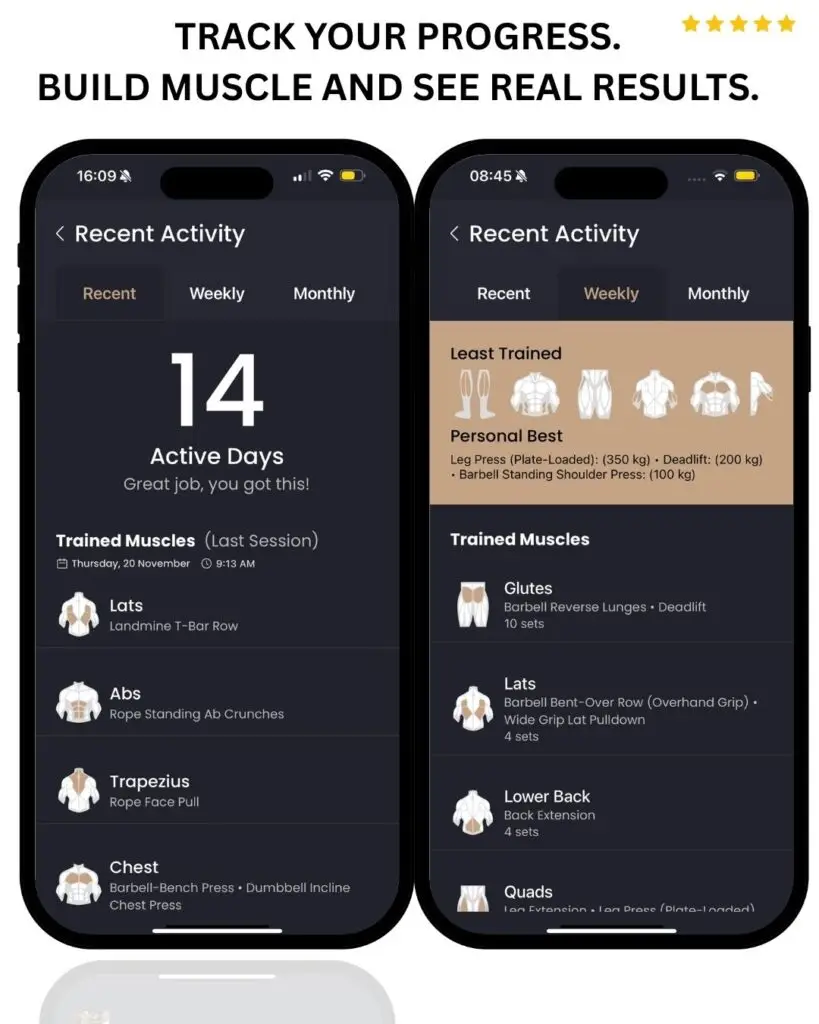
just12reps: A Smart Strength-Training App
As a concrete example of these AI-inspired innovations, the j12reps app offers a range of cutting-edge features for strength training enthusiasts. It employs a powerful algorithmic engine (marketed as AI) to deliver truly personalised programmes and tracking.
According to the company, 12REPS “filters its extensive exercise library” based on your goals, experience, and equipment. In practice, this means the app constructs your day-one workout right for you. Key capabilities include:
- Custom workout generation: Based on a short questionnaire (goals, fitness level, and available equipment), the app creates a personalised training plan. Every routine is calibrated to your inputs, so it immediately focuses on what you need.
- Extensive exercise library: The system features over 1,500 exercises, including many that require no equipment. This allows it to adapt routines for any setting, from a full gym to a hotel room, by substituting moves that can be done.
- Adaptive progression: As you use 12REPS, the plan evolves. The app “tracks your sets, reps, and weights…and even asks how you’re feeling,” then adjusts subsequent workouts in real time . If you hit targets easily, it ups the load, and if you struggle, it eases off.
- Smart tracking and feedback: The app serves as both a training log and a feedback tool. You enter each set and weight, and intelligent analytics provide insights into strength trends. It suggests when to increase weight or swap in new exercises, so you keep progressing instead of stalling.
- Expert-designed content: All workouts in the app are created by certified trainers, not randomly generated. The AI “selects and adjusts those expert-designed workouts to fit you best” . In other words, you follow science-backed routines while the technology handles the planning.
By integrating these elements, 12reps app functions like a high-tech personal trainer. It delivers the benefits of data-driven programming (rapid gains, reduced injury risk, consistent progress) while remaining user-friendly. This positions it as a leader among modern fitness solutions.
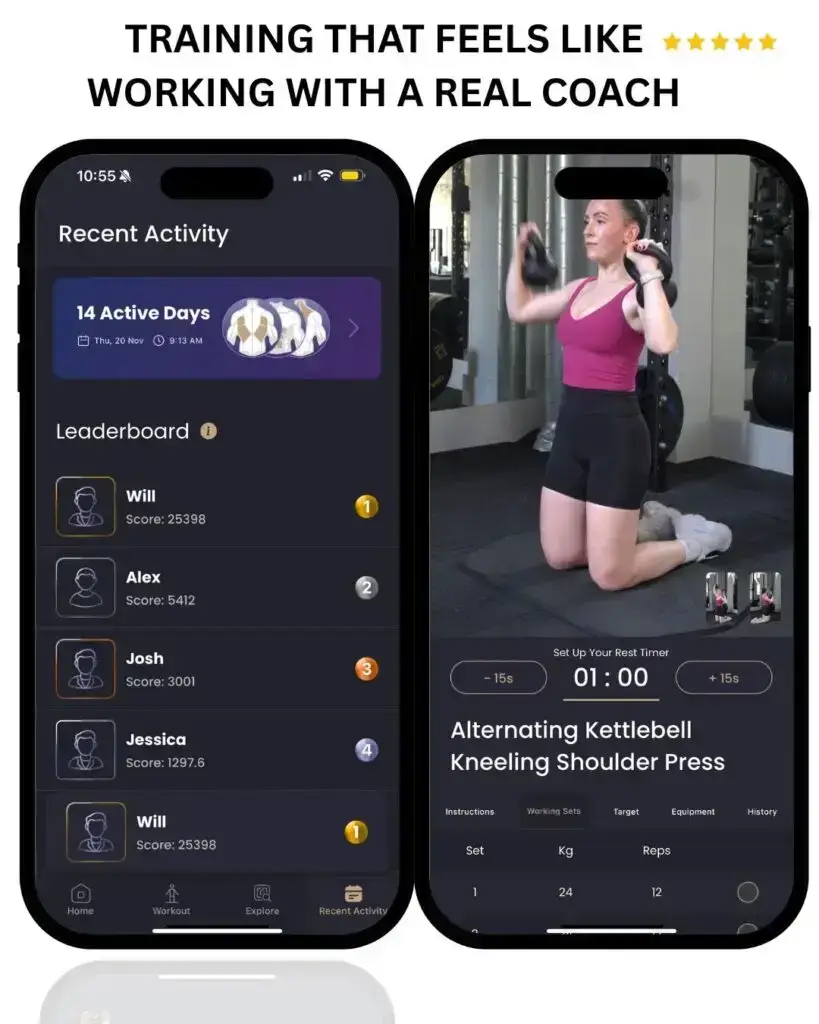
Looking Ahead: Smarter Workouts Every Day
The trajectory is clear: AI and smart technology will become even more entwined with our fitness. Future developments may include advanced biometric sensors to detect muscle fatigue in real-time, AI-powered nutritionists customising your diet, or immersive VR/AR workouts guided by virtual coaches. Analysts predict that the next wave of apps will offer predictive analytics and holistic health insights, for instance, by integrating mental wellness or sleep data into fitness plans.
Ultimately, AI brings a new level of personalisation and convenience. As one industry expert observes, “The future of AI in fitness software and apps promises to be transformative”, enabling hyper-personalised programmes and data-driven coaching that seamlessly support your health and wellness. For tech-savvy gym-goers and novices alike, this means workouts that are smarter, safer, and more motivating. With platforms like 12reps app at the forefront, the gym of tomorrow is already in your pocket.
Sources: Authoritative industry and technical sources were consulted, including health and fitness publications and the 12REPS website , to ensure accurate coverage of AI’s role in modern fitness.


